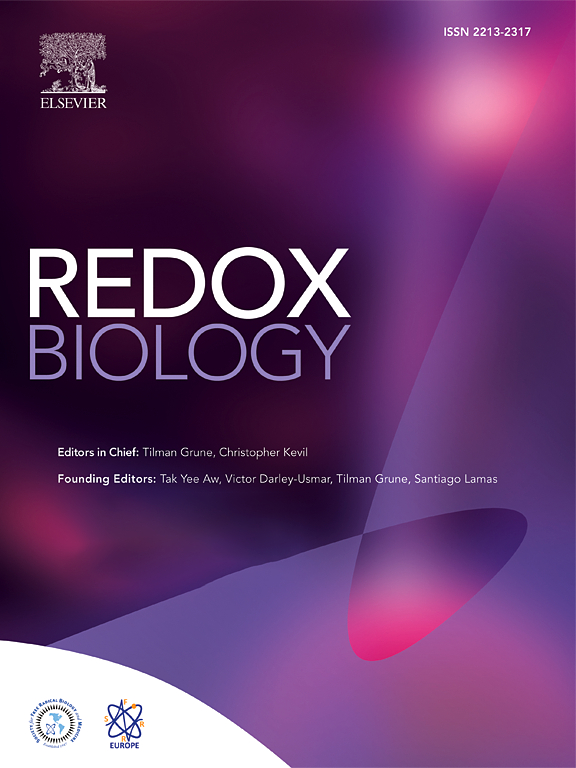NOX2在阿尔茨海默病和帕金森病中的作用
IF 10.7
1区 生物学
Q1 BIOCHEMISTRY & MOLECULAR BIOLOGY
引用次数: 0
摘要
随着老年人口数量的增加,阿尔茨海默病(AD)和相关的痴呆症日益受到全世界人口的关注。阿尔茨海默病以神经组织和关键过程的显著退化为特征,此外还有更具体的因素,如淀粉样斑块和神经原纤维缠结的存在,关于这些疾病发生的确切机制正在进行激烈的讨论。近年来的主要研究方向之一是活性氧(ROS)的作用,特别是产生活性氧的NADPH氧化酶蛋白的作用。NADPH氧化酶2 (NOX2)是该家族的典型成员,它与包括大脑在内的所有组织中的血管和炎症过程密切相关,并且这些过程与AD的发生和进展有关,因此是一个特别有趣的研究目标。在这篇综述中,我们讨论了NOX2在神经元、小胶质和脑血管信号传导中对AD进展的贡献。此外,我们将讨论最有希望的nox2靶向治疗潜在的AD管理和治疗。本文章由计算机程序翻译,如有差异,请以英文原文为准。
NOX2 in Alzheimer's and Parkinson's disease
Alzheimer's Disease (AD), and related dementias, represent a growing concern for the worldwide population given the increased numbers of people of advanced age. Marked by significant degradation of neurological tissues and critical processes, in addition to more specific factors such as the presence of amyloid plaques and neurofibrillary tangles in AD, robust discussion is ongoing regarding the precise mechanisms by which these diseases arise. One of the major interests in recent years has been the contribution of reactive oxygen species (ROS) and, particularly, the contribution of the ROS-generating NADPH Oxidase proteins. NADPH Oxidase 2 (NOX2), the prototypical member of the family, represents a particularly interesting target for study given its close association with vascular and inflammatory processes in all tissues, including the brain, and the association of these processes with AD development and progression. In this review, we discuss the most relevant and recent work regarding the contribution of NOX2 to AD progression in neuronal, microglial, and cerebrovascular signaling. Furthermore, we will discuss the most promising NOX2-targeted therapeutics for potential AD management and treatment.
求助全文
通过发布文献求助,成功后即可免费获取论文全文。
去求助
来源期刊

Redox Biology
BIOCHEMISTRY & MOLECULAR BIOLOGY-
CiteScore
19.90
自引率
3.50%
发文量
318
审稿时长
25 days
期刊介绍:
Redox Biology is the official journal of the Society for Redox Biology and Medicine and the Society for Free Radical Research-Europe. It is also affiliated with the International Society for Free Radical Research (SFRRI). This journal serves as a platform for publishing pioneering research, innovative methods, and comprehensive review articles in the field of redox biology, encompassing both health and disease.
Redox Biology welcomes various forms of contributions, including research articles (short or full communications), methods, mini-reviews, and commentaries. Through its diverse range of published content, Redox Biology aims to foster advancements and insights in the understanding of redox biology and its implications.
 求助内容:
求助内容: 应助结果提醒方式:
应助结果提醒方式:


